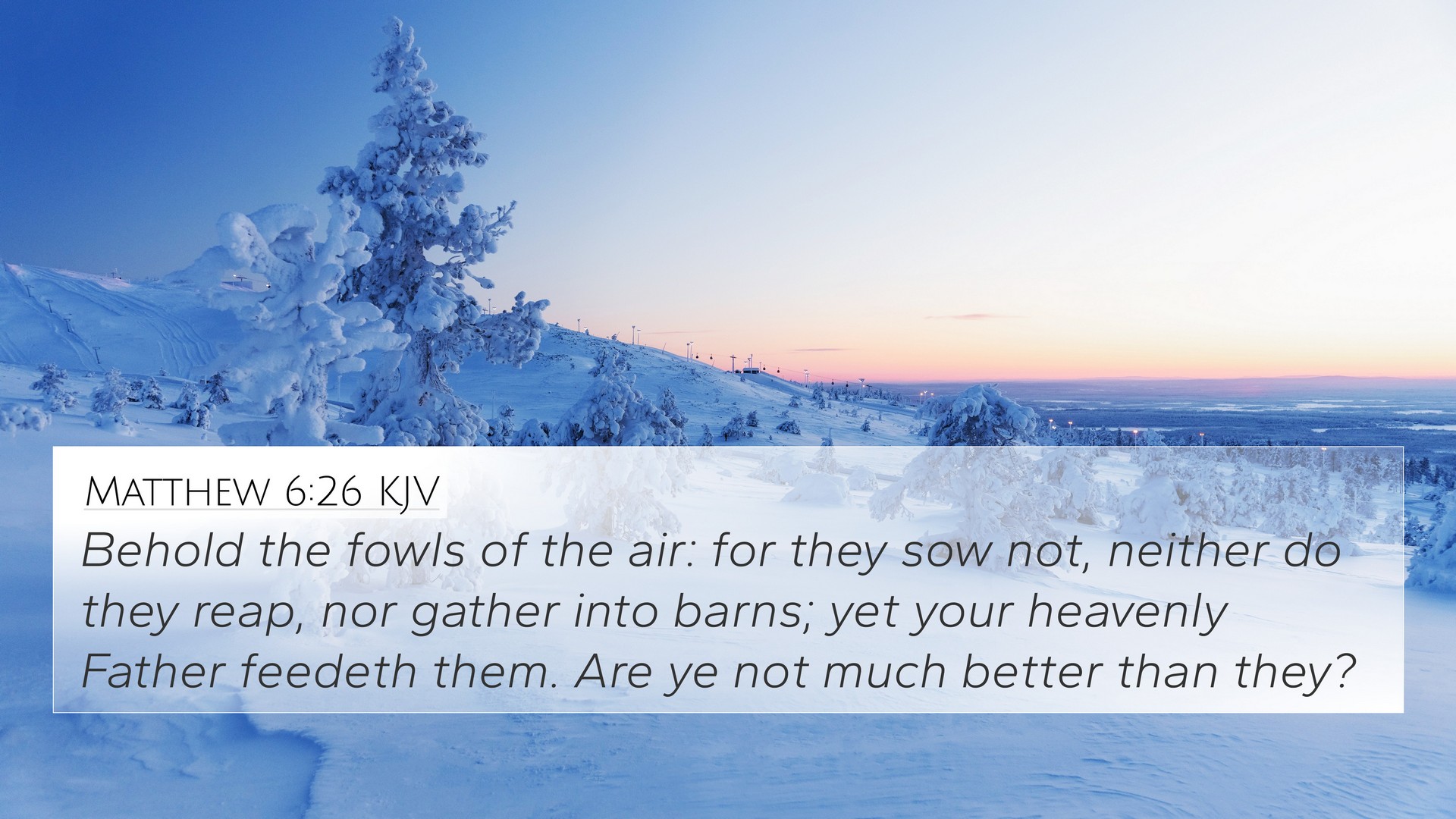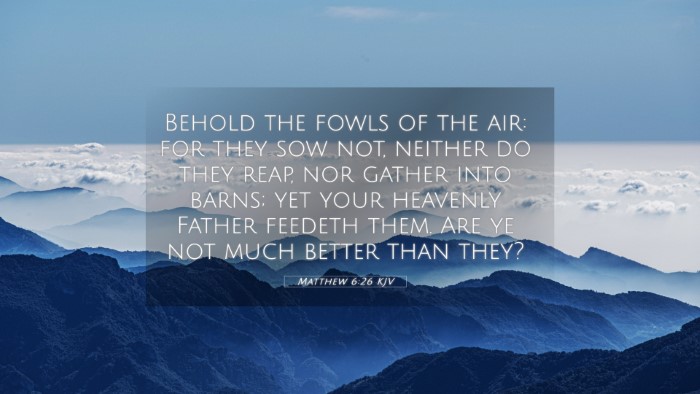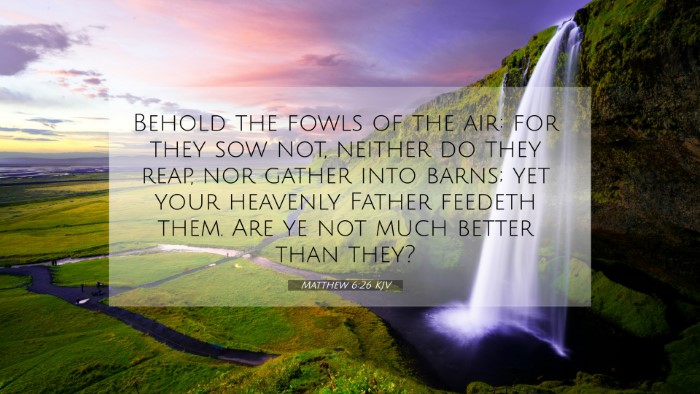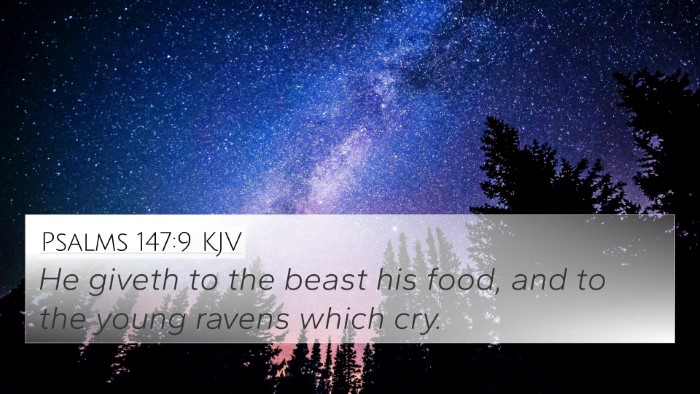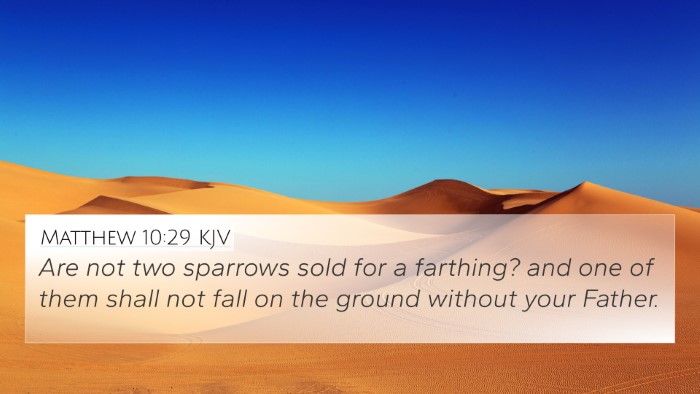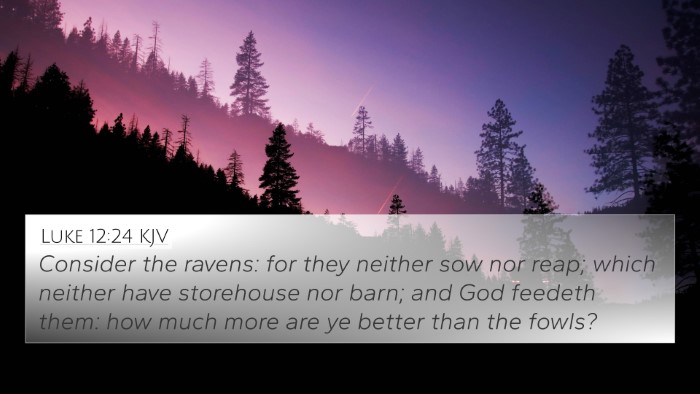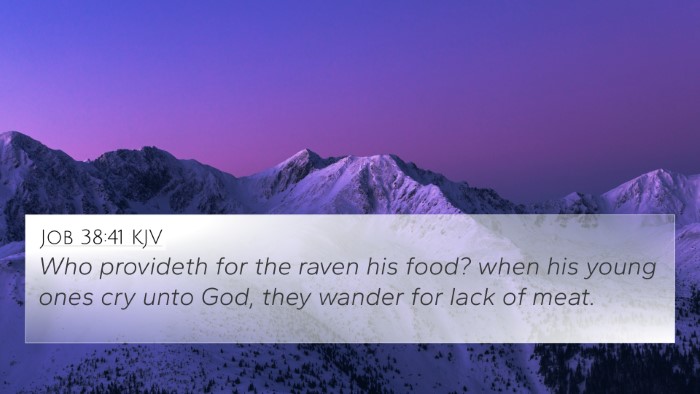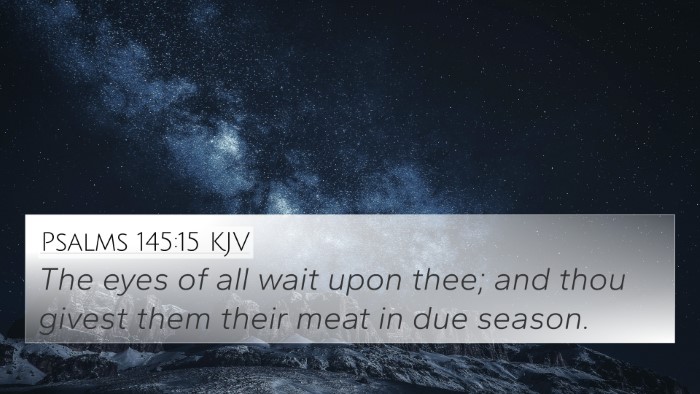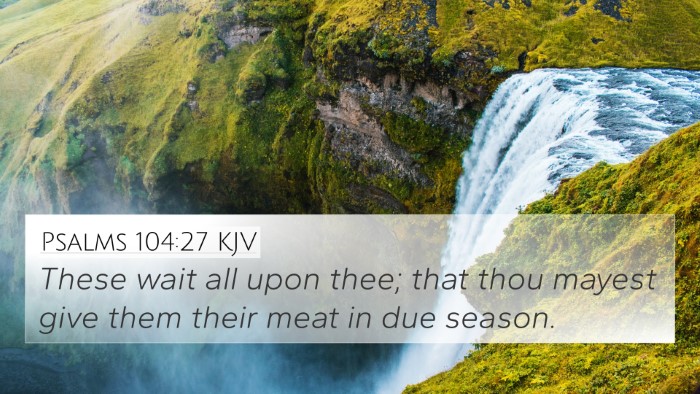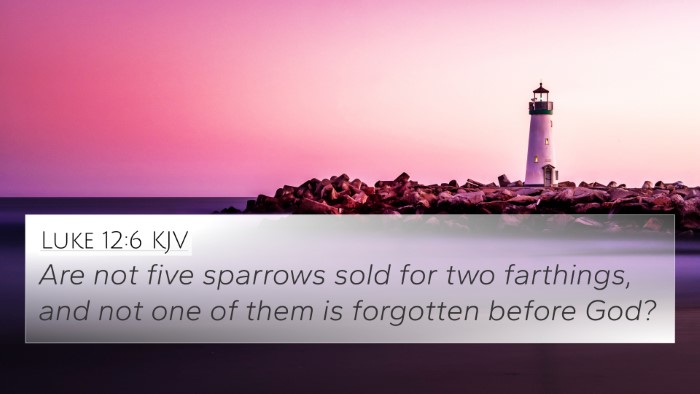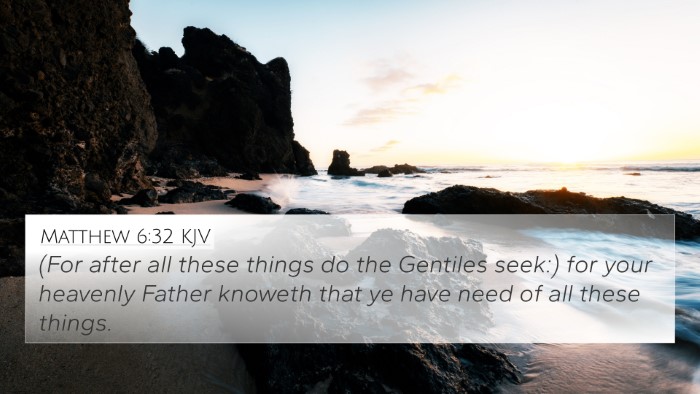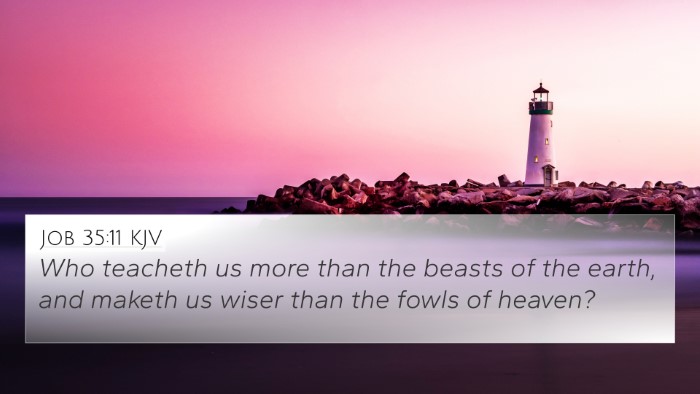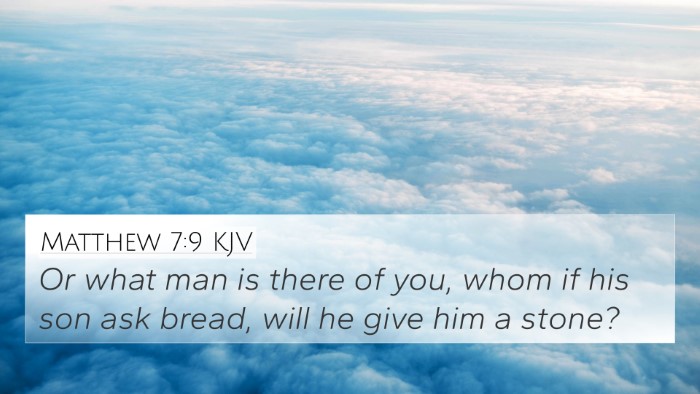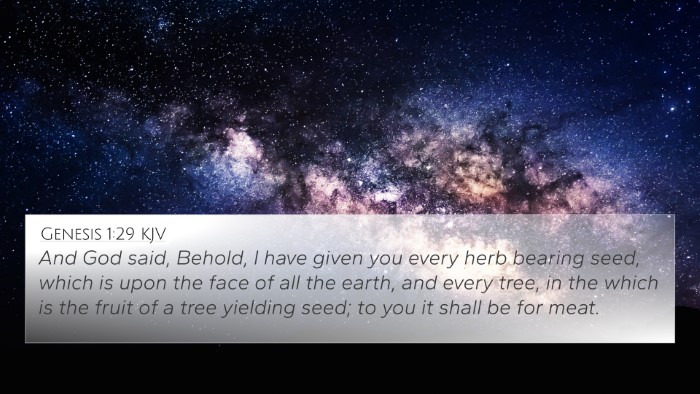Understanding Matthew 6:26
Matthew 6:26 states, "Look at the birds of the air; they neither sow nor reap nor gather into barns, and yet your heavenly Father feeds them. Are you not of more value than they?" This verse reflects a significant teaching of Jesus, emphasizing God's provision and care for all His creation, especially for human beings.
The overarching theme in this passage is God's providence. The verse invites believers to consider the birds—creatures that do not toil or sow yet are provided for by God. This serves as a powerful reminder of human worth in the eyes of God.
Commentary Insights
-
Matthew Henry: He elaborates on the minimal labor of birds compared to the abundant provision they receive from God. Henry emphasizes that if God cares for the lesser creatures, He surely will care for His children who are made in His image.
-
Albert Barnes: Barnes highlights the idea that God's care for nature is an assurance for mankind. He interprets the phrase "more value than they" to stress the elevated position of humans in creation, entrusted with a relationship with the Creator.
-
Adam Clarke: Clarke discusses the spiritual application of the verse; he urges believers to trust in God's provision for their needs, just as birds do not labor for sustenance. He provides encouragement, suggesting that anxiety about material needs is misplaced when God is in control.
Thematic Connections to Other Scriptures
- Psalm 104:27-28 - This Psalm describes how all creatures depend on God for food.
- Luke 12:24 - A parallel verse where Jesus reiterates the lesson from Matthew 6:26 about birds and God's provision.
- Philippians 4:19 - Encourages believers that God will provide for their needs according to His riches in glory.
- 1 Peter 5:7 - Reminding believers to cast their anxieties on God because He cares for them.
- Isaiah 40:30-31 - Illustrates how God provides strength and sustenance to those who trust in Him.
- Matthew 10:29 - Jesus points out that not even a sparrow falls to the ground without the Father's knowledge, reinforcing individual care.
- Job 38:41 - God questions Job about who provides for the ravens, showing His control over creation.
- Romans 8:32 - Speaks to God's ultimate provision, emphasizing that He will not withhold any good thing from those who love Him.
- John 6:27 - Jesus teaches about seeking the food that endures to eternal life rather than temporary providence.
- Matthew 14:19 - Demonstrates Jesus' miraculous provision by feeding the multitudes, indicating God's ability to provide abundantly.
Thematic Bible Verse Connections
This verse connects to broader themes throughout both the Old and New Testaments. The connections can be traced through the following thematic links:
-
Dependence on God: Multiple verses underscore the necessity of relying on God for sustenance and provision, such as Matthew 4:4: "Man shall not live by bread alone."
-
God's Sovereignty: Scripture often reflects God’s sovereignty over all creation, highlighted in Colossians 1:17, stating, "He is before all things, and in Him all things hold together."
-
Value of Humanity: The consistent message throughout scripture, from Genesis 1:27 where humans are made in God's image, affirms human worth, resonating with the implications found in Matthew 6:26.
Practical Applications of Matthew 6:26
The teachings derived from this verse can profoundly affect the believer's daily life:
-
Trust in Divine Provision: Believers are encouraged to trust that God will provide for their material and spiritual needs.
-
Combatting Worry: The teachings serve as an antidote to anxiety, reminding Christians to focus on God's past faithfulness.
-
Value of Life: Acknowledging one's value to God can inspire individuals to respect their own lives and the lives of others.
Conclusion
Matthew 6:26 encapsulates a significant biblical truth regarding God's loving provision and care. By examining this verse alongside others, believers can develop a richer understanding of God’s promise to care for His creation, transcending mere existential needs, and pointing to a greater divine relationship.
Overall, exploring Matthew 6:26 in connection with these other verses creates a robust framework for understanding the core message of reliance on God and appreciation of human worth in the divine economy.
